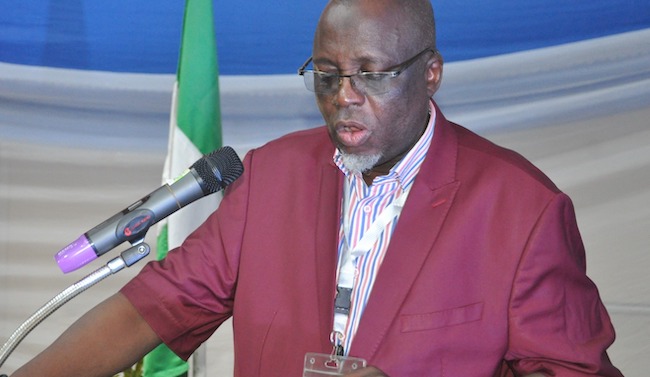The 2025 Unified Tertiary Matriculation Examination (UTME) encountered technical glitches, sparking controversy and scrutiny directed towards Professor Is-haq Oloyede, the Registrar of the Joint Admissions and Matriculation Board (JAMB). However, a wave of support has emerged for Oloyede from prominent individuals and organizations, commending his integrity, humility, and commitment to accountability in addressing the issue. The Nasrul-Lahi-l-Fatih Society (NASFAT), a prominent Islamic organization, expressed its solidarity with Oloyede, attributing the technical disruptions to an “error of judgment” rather than intentional negligence or misconduct. They emphasized the absence of malicious intent and underscored the human fallibility that can lead to unforeseen errors. They further lauded Oloyede’s humility in acknowledging the issues and his unwavering commitment to his duties, highlighting his long-standing reputation for integrity and diligence.
The Association of African Universities (AAU) also voiced strong support for Oloyede, praising his transparency and accountability in handling the UTME technical challenges. The AAU emphasized that Oloyede’s public acknowledgment of the errors and his empathy toward affected candidates set a commendable standard for public accountability in Africa. His actions were described as a “breath of fresh air” in an environment where public officials often shirk responsibility. The AAU, representing higher education institutions across the continent, proudly recognized Oloyede as an exemplar of integrity and transformational leadership in African academia and public administration. They expressed hope that his actions would inspire a culture of responsibility and transparency among other public officials.
Professor Yusuf Ali, a distinguished legal scholar and community leader, offered a robust defense of Oloyede, vouching for his unwavering honesty, integrity, and empathy. Ali highlighted Oloyede’s rare willingness to publicly acknowledge errors, accept responsibility, and demonstrate genuine empathy towards the affected candidates, a stark contrast to the usual behavior of Nigerian public officials. He criticized calls for Oloyede’s resignation as misguided, arguing that true leadership involves navigating challenges rather than abandoning ship during crises. He emphasized that Oloyede’s decision to stay and address the issues was a testament to his courageous leadership.
Ali further emphasized Oloyede’s tireless dedication and commitment to his role as JAMB Registrar, recounting his firsthand knowledge of Oloyede’s extensive efforts, including sleepless nights and extensive travel across the country, to ensure the smooth execution of the UTME. This dedication, according to Ali, further reinforces Oloyede’s commitment to his responsibilities and underscores his unwavering dedication to the success of the UTME.
The controversy surrounding the 2025 UTME technical issues brought to light the challenges inherent in administering large-scale examinations. While technical glitches are unfortunate, the responses from NASFAT, AAU, and Professor Ali highlighted the importance of accountability, transparency, and empathy in leadership. Oloyede’s response to the situation, characterized by his public acknowledgment of the errors and his commitment to resolving them, earned him widespread commendation and solidified his reputation as a principled and responsible public official.
This incident also underscores the need for continuous improvement in examination processes and technologies to minimize the occurrence of such disruptions in the future. While human error is inevitable, investing in robust systems and protocols can help mitigate the impact of technical glitches and ensure the smooth and fair conduct of examinations. The support for Oloyede reflects a broader desire for accountability and transparency in public service, emphasizing the importance of leaders who take responsibility for their actions and demonstrate genuine concern for those affected by unforeseen circumstances. The incident serves as a valuable case study in crisis management and leadership, highlighting the importance of integrity, humility, and empathy in navigating challenging situations.














